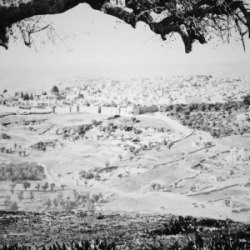
This story uses the then-popular belief that the afterlife would include a great reversal. Many teachers used the great reversal trope to value spiritual pursuits in the present, like contrasting the poor scholar of the Torah and rich publican (see J. Jeremias, Parables p. 183). Luke’s Jesus makes his story less a contrast between a scholar and a tax collector and more a universal story of the poor and the rich. The poor don’t have to be Torah scholars to be deserving or for Jesus to critique the economic injustice of Luke’s time.
Welcome Readers! Please subscribe to Social Jesus Here.
This is Part 2 of The Rich Man, Lazarus and Justice
(Read this series from its beginning here.)
There are so many little details in this story that have literary importance. In a world where people would have known the names of rich people while poor people would have only been the nameless masses, Luke’s Jesus leaves his rich man nameless but humanizes the poor man by naming him Lazarus. Lazarus is immortalized in the story, and that would have cut across the grain of expectations of the time.
Some details of this story also offer a powerful message about economic justice, critiquing wealth inequality and wealthy people’s immoral disregard of the poor. In the story, the rich man lives in luxury, ignoring Lazarus, a poor man who suffers at his gate. When they die, their fortunes are reversed: Lazarus is comforted in “Abraham’s bosom,” while the rich man is tormented in Hades, another popular Hellenistic idea of what the afterlife might be like when this story was written.
Th reversal of Lazarus and the rich man underscores the rich man’s moral failure and indifference. Lazarus wasn’t far away; he was at the rich man’s doorstep. Yet the rich man did nothing to ease his suffering. Over and over again, Jesus’ kingdom teachings taught that when his listeners had more than they needed, their call was to share that surplus with those whose daily needs were going unmet. The parable highlights the grave tragedy of having the ability to ease others’ suffering and instead choosing to ignoring the needs of others. Imagine that the five richest people on the planet could end world hunger forever, and each night they go to bed not doing it.
The story is a call for economic justice. Tor Jesus, inherently instrinsic to wealth was the responsibility of making sure that very wealth was redistributed more equitably. “Sell your possessions, and give alms. Make purses for yourselves that do not wear out, an unfailing treasure in heaven, where no thief comes near and no moth destroys” (Luke 12:33). Our reading this week challenges a worldview where people see prosperity as a sign of divine favor, and reminds readers that material comfort can blind them to the suffering around them. The parable also posits that posthumous regret in whatever afterlife there may be comes too late. That regret won’t undo the harm caused by economic apathy. The time to act is today.
In today’s world, where extreme poverty and wealth coexist, this story remains deeply relevant. We’ll explore how this story could still inform our economic justice work, today, in Part 3.
Are you receiving all of RHM’s free resources each week?
Begin each day being inspired toward love, compassion, justice and action. Free.
Sign up at HERE.















